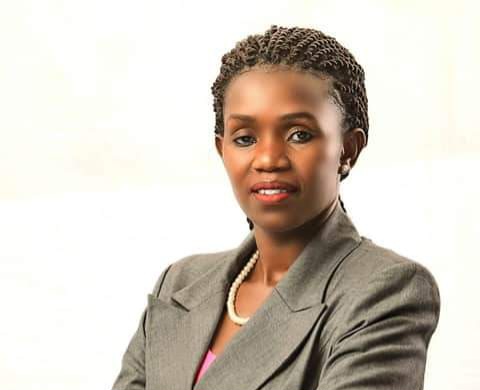
AGNES NAMAGANDA: Possible reason behind the increase in monetized prayer by men of God
Awhile back, writers, Gabriel Buule and Gloria Irankunda published an article bashing men of God who are increasingly demanding for money in exchange for prayers. The article ran under the title; “Prayers for sale: How ‘Men of God; are monetizing miracles”. Their argument was based on Mat 10:8 which encourages those who have the gift of performing miracles, to do it free of charge since the gift is freely given by God. While masking their identities, the writers went on to give the views of the men of God who require money in exchange for miracle prayers. On the contrary, the writers mentioned a Pastor Isaac Hakiza, who is presented as a genuine man of God that has been at the fore of condemning the vice. Quite literally, the article seemed like a promotional write-up for Hakiza, whose names, Church, complete with location, are mentioned, while the details of the money-minded servants of God are hidden. If one is going to do an expose’, then expose, so that the public is warned against falling prey! Why cover up their identities? Otherwise, article could be taken to imply that all men of God are money-minded except Hakiza. Secondly, the writers only made a case for people that were frustrated by this prayers-for-sale trade. There was not a single positive testimony about a person who was prayed for, and they received their miracle. This is a gross imbalance in reporting on the subject. There is no smoke without fire. If people are lining up to be prayed for by men of God, take time and inquire about their reasons. The writers however, made no effort in exploring this angle. The article was biased from the word , go. On TV a few months back, as I was scrolling through the channels in the comfort of my living room on a Sunday, I happened to come across the family of Prof. Barnnabbas Nawangwe, a whole Vice Chancellor of the current number one university in East Africa, at the pulpit of Pastor Kayanja, on his Channel 44. The family was giving thanks while holding a bulging envelope, possibly containing a sizable amount of money as an offering. Apparently, if I got it correctly, the family had a problem child, who through the prayers of Pastor Kayanja, had reformed, and was ready to get back on the right course of life. This boy was now ready to continue with his education after the intervention of Pastor Kayanja, and the family was besides itself with joy and appreciation. Any parent understands the helplessness that a child, errant in one way or another, can cause the whole family. We can argue that the child finally gained some sense and decided to step back on the apprehension he was causing his family. However, you cannot convince this family that this child was not helped by Pastor Kayanja’s prayers. With that testimony, aired on TV moreover, many other families will obviously be approaching Pastor Kayanja for similar help. There are so many families that are struggling and watching helplessly as their children get addicted to vices like drugs. Some cannot even afford expensive rehabilitation services while some that can afford, see no results. It is laughable that many people accuse men of God for amassing wealth at the expense of their poor flock. Is Prof. Nawangwe, a poor man? Imagine the kind of offering that this family gave to this Church after the recovery of their child! Do people actually start to think about the kind of spiritual and moral support that these people offer to the nation? The bible in 1 Sam 9 carries the story of Saul and his servant who made sure they had an offering as they went into meet the man of God, Prophet Samuel. These two were sick with worry over donkeys that they had lost. In verse 8, Saul’s servant is quoted as thus; “Look, I have a quarter of shekel of silver. I will give it to the man of Godnso that he will tell us what way to take.” In this day and age, Buule, Irankunda, and others, would possibly claim that Samuel was monetizing his gift of prophecy to enrich himself. Yet, presenting a gift when seeking a solution, is a key in spiritual dealings. In fact, the bible says in Deut 16:17 that, “thou, shall not come before the Lord empty-handed.” Clearly, Saul and his servant knew this. They were going to seek a solution from a man but they carried a gift because this man had a gift of seeing into the future. They knew that by going to Samuel, they were actually appearing before God. This demonstrates a key principle in seeking divine solutions from a man of God. The seeker must be fully convinced that the man of God is genuine. If you are not sure about the authenticity of a man of God, stay away. The spirit realm works on the principle of faith. Unbelief and doubt are the greatest impediment to receiving a miracle. Even Jesus, failed to perform miracles in the face of unbelief, yet He is God. He failed. The testimonies mentioned in the write-up by Buule and Irankunda were marred with unbelief, little wonder that the seekers didn’t receive their miracles. Obviously, fakes are in all fields including the prestigious men of God club. This should be no surprise. It is clearly written in scripture that these will emerge. However, to get a miracle, there has got to be some sacrifice. Imagine a person that has been asked for Shs 450 million for a medical procedure abroad, crying for giving Shs 200,000 as an offering to meet the man of God. Some of these men of God have been forced to become more forthright about demanding for an offering because the seekers are not educated in the matters of the spirit. You find that this man of God has rented premises, pays water bills, and electricity bills, with office assistants or ushers to support in receiving guests daily. Some of these chronically ill patients will head to the wash rooms, finish a whole toilet roll, and flush 20 times, yet they expect this man of God who spends the whole day attending to them, to find ways of paying these bills. This is blatant lack of empathy. The gift of performing miracles is free, but the utility costs are not. The office attendants must have lunch, and the bills at the premises where you meet these men of God, must be paid. Since, these individuals are ignorant about appearing before God with an offering, men of God are forced to include a charge for their services. It is also well-known that these men of God spend appreciable amounts of time in the presence of God so they are able to receive the grace to perform miracles. They also have to patiently sit and listen to all manner of recounts about failed marriages, barrenness, sickness, and errant children. This is the very same way, mainstream health workers spend time in school to hone their skills in medical practice, and listening to patients. Why isn’t it a problem when health workers ask for a consultation fee for their services? The man of God is also skilled in providing divine solutions. The gift demanded of the Lord, was stipulated because God foresaw insensitive individuals, seeking solutions without giving anything to the effect. As long as the office premises need to be paid for, and the man of God has a family to look after, but yet spends the entire day praying for people with challenges, it is only human that an amount is given to support their availability. Many people do not even give tithe but expect the man of God to spend three hours attending to them, only for them to confidently walk away. If healing miracles do happen, then a Church is a hospital of sorts. It is only logical that people for prayers so the man of God can meet his/her personal needs and the needs of the Church. Agnes Namaganda aggiemire@yahoo.com Do you have a story in your community or an opinion to share with us: Email us at editorial@watchdoguganda.com

